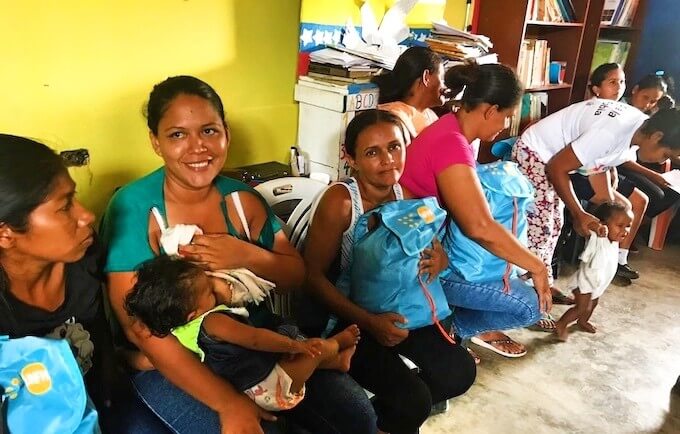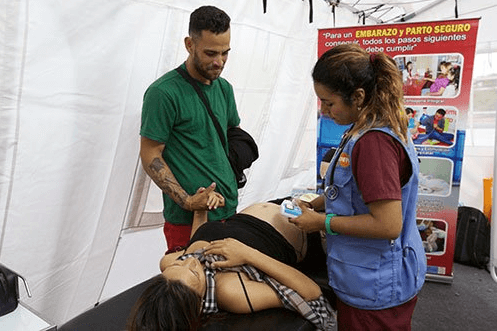Hope and Healing: UNFPA Provides Training on Sexual and Reproductive Health in Venezuela

“We have been traveling for a week without being able to sleep, take a shower or eat well. I get tired easily, and have vomiting and headaches,” said Mariana, who is five months pregnant and migrating from Venezuela.
Escaping gang warfare, food scarcity, and economic collapse, around 4.2 million people have fled Venezuela since 2014.
Those left behind—especially people living in the country’s remote regions—are in desperate need of care.
An estimated 80 percent of Venezuelan women who want to avoid pregnancy can’t access birth control. Limited availability of medicines, overcrowded facilities, and power outages leave expectant mothers at risk of dying in childbirth. Survivors of sexual and gender-based violence need social, emotional, and mental health support.
Adding to the crisis is a shortage of health workers—particularly those knowledgeable of sexual and reproductive health issues.
José Gregorio Cuenza, a health official in Paez, which is approximately 270 miles from Caracas, Venezuela’s capital, has already noticed the positive impact:
“When health workers build and update their skills, those who benefit the most are the people living in nearby communities. Now they get not only basic services but also proper guidance on how to deal with taboo issues such as sexual and reproductive health, sexual abuse, and gender-based violence.”

pregnancy is healthy, even after fleeing Venezuela. © UNFPA Peru
Women and girls who travel great distances—often alone—from towns like Paez to find work in neighboring countries are especially vulnerable. UNFPA is reaching them by posting information in community centers, local markets, and public transportation hubs on where to find help. As part of this campaign, 10,000 women have received dignity kits, which contain essential hygiene supplies like soap and menstrual products.
Dr. Leonardo de Abreu, a UNFPA-supported obstetrician and gynecologist, is determined to expand these efforts. “The humanitarian crisis hit us hard. Talking about it is not the same as living it,” he said. “And we stayed behind to work for Venezuela because we need to go beyond just hope—and act.”